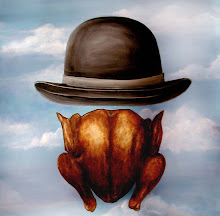
Every country or society requires commonly understood rules of the road because without them chaos would ensue and road travel would be impossible.
Laws that protect the person and legitimate property from unwanted interference from others are -- or should be -- based on principles understood and accepted by society at large. Why isn't that the case regarding the laws making some drugs illicit?
For example, why is heroin illicit and morphine not? They are equally addictive and equally effective as analgesic, except that morphine is more likely to cause dangerous and sometimes fatal allergic reactions.
Let's compare marijuana and tobacco:
* They are both plants that can be dried and prepared for smoking.
* The nicotine content in tobacco makes tobacco far more addictive than marijuana, while tobacco results in far higher morbidity and mortality.
* There are no known medicinal uses for tobacco, while marijuana has been used medicinally for millennia. Its first cousin hemp -- which lacks medicinal and/or psychogenic properties -- has many uses as food, fiber and oils, and is also prohibited.
How successful have illicit drug laws been in controlling the use of the selected drugs?
It appears the prohibition of the selected drugs has universally increased the use of any drug selected for prohibition, at a rate far greater than comparable drugs that have remained legal.
Why is that? Consider:
* Each of the drugs selected for prohibition is addictive.
* Entrepreneurs are prepared to break the law and supply the illicit drugs at the premium rates.
* Some dependent users, usually the poor, fund their use by becoming suppliers, and, in the process, recruit friends and acquaintances to use, some of whom became dependent.
These mechanisms have been operative for each of the drugs selected for prohibition. It happened in Turkey in the 17th century when the government prohibited tobacco, a prohibition that lasted 13 years and was associated with the criminal sanction of execution of up to 18 people each day. It happened in the U.S. when we prohibited the sale of alcoholic beverages for 13 years.
In Australia, the importation of heroin was prohibited in 1953. Prior to the prohibition of heroin, the 1951 national statistical survey showed 45 kilos of heroin as the total import and deaths due to opiate use as zero. By 1999, after 46 years of prohibition, the National Crime Authority estimated an importation of 6,700 kilos of heroin per annum and 1,100 acute deaths due to its use in that year.
Additional examples abound. Several centuries ago serious criminal sanctions applied to the use of coffee in certain northern states of Italy, and similarly tobacco was prohibited in the Caribbean Islands.
So tell me again, what is our drug war about?






5 comments:
I'll see you at the Libertarian Party Meetings!
The war on drugs is a myth.
During times of no war the government keeps a good supply of drugs circulating throughout society.
Drugs and sensual entertainments keep the masses opiated and insensate. We leave the governmental machine alone and don't ask questions. They rule while we drool.
The only time the drugs are withdrawn is when they need soldiers with sharp reflexes and keen minds. Read Erich Fromm's, Man And a Sane Society.
(There is a science to political control. It is well worth study.)
As for cigarettes, simply one cog in the population control of society.
I hope your having a nice Thanksgiving.
And now for my comment....
It seems to me that the only logical reason to keep this "drug war" ongoing is that it is more profitable for the government to keep it illegal. Even though they could tax it, we also have the problem of all these DEA agents, et al, losing their "jobs", etc.. We are just so deeply entrenched in this drug war that, even though it defies rational reasoning, they continue the dogma.
i agree with paul on this one. wow...your blog is really exceptional. i love your thought provoking questions. i hope more folk come by to debate the issues.
Post a Comment